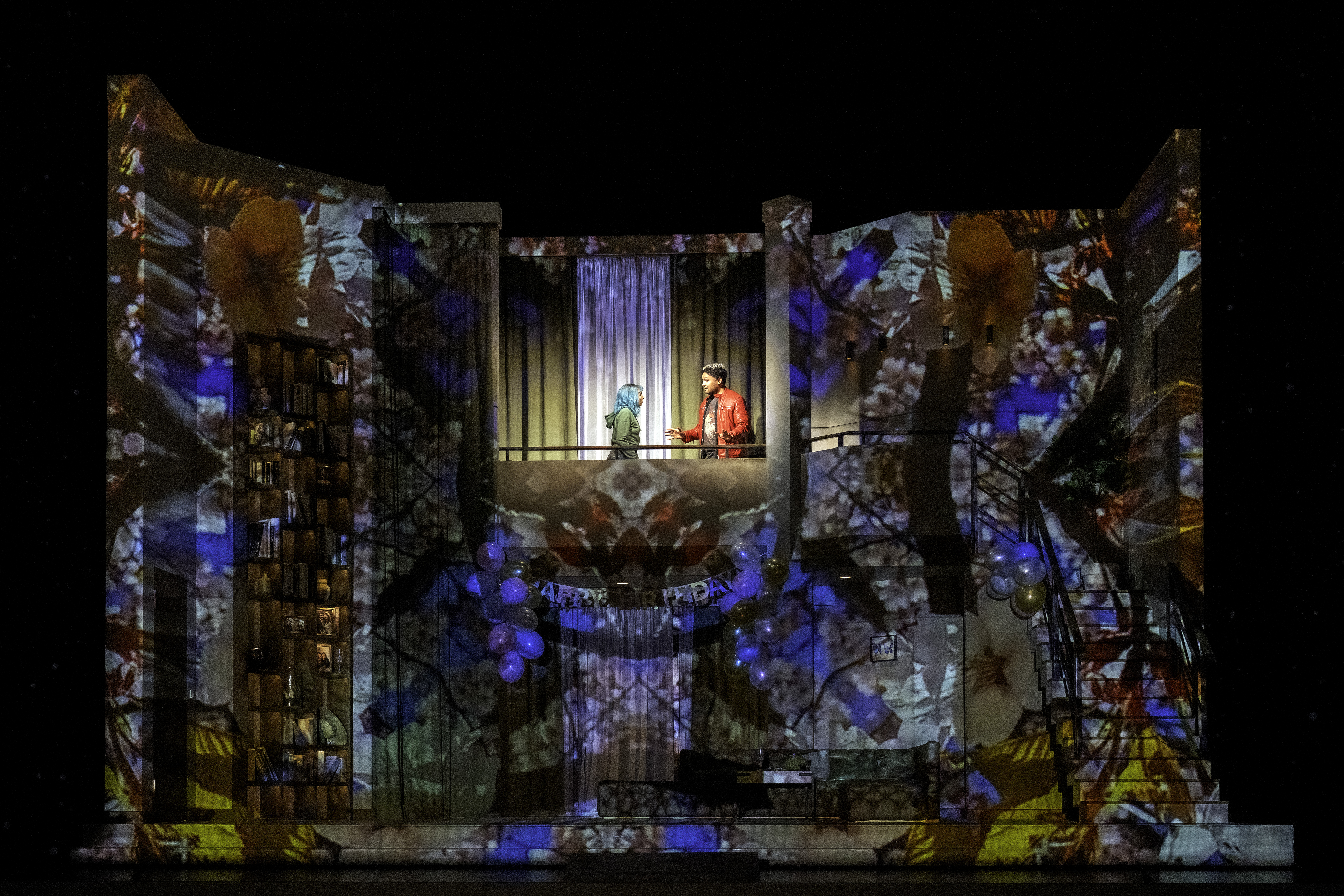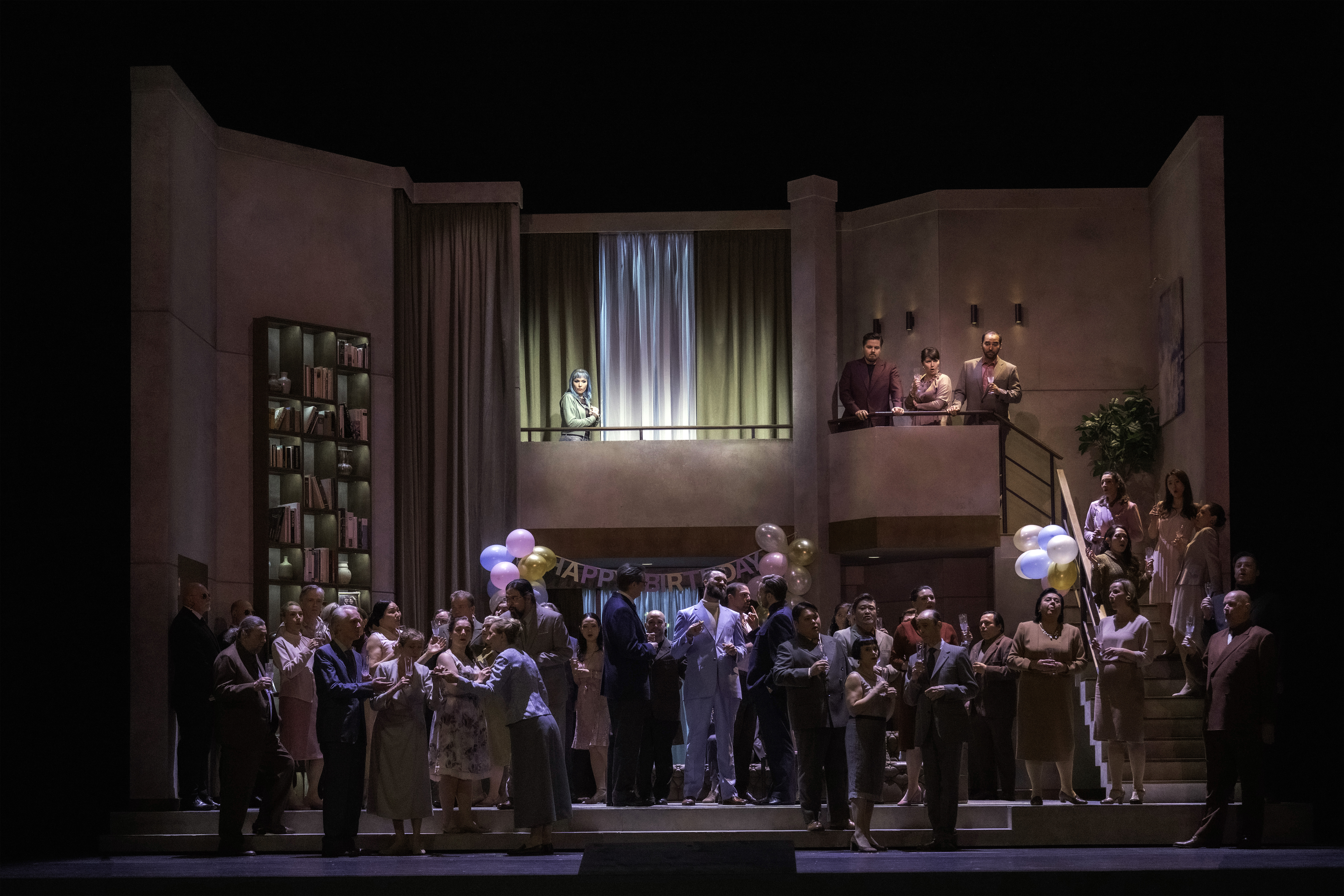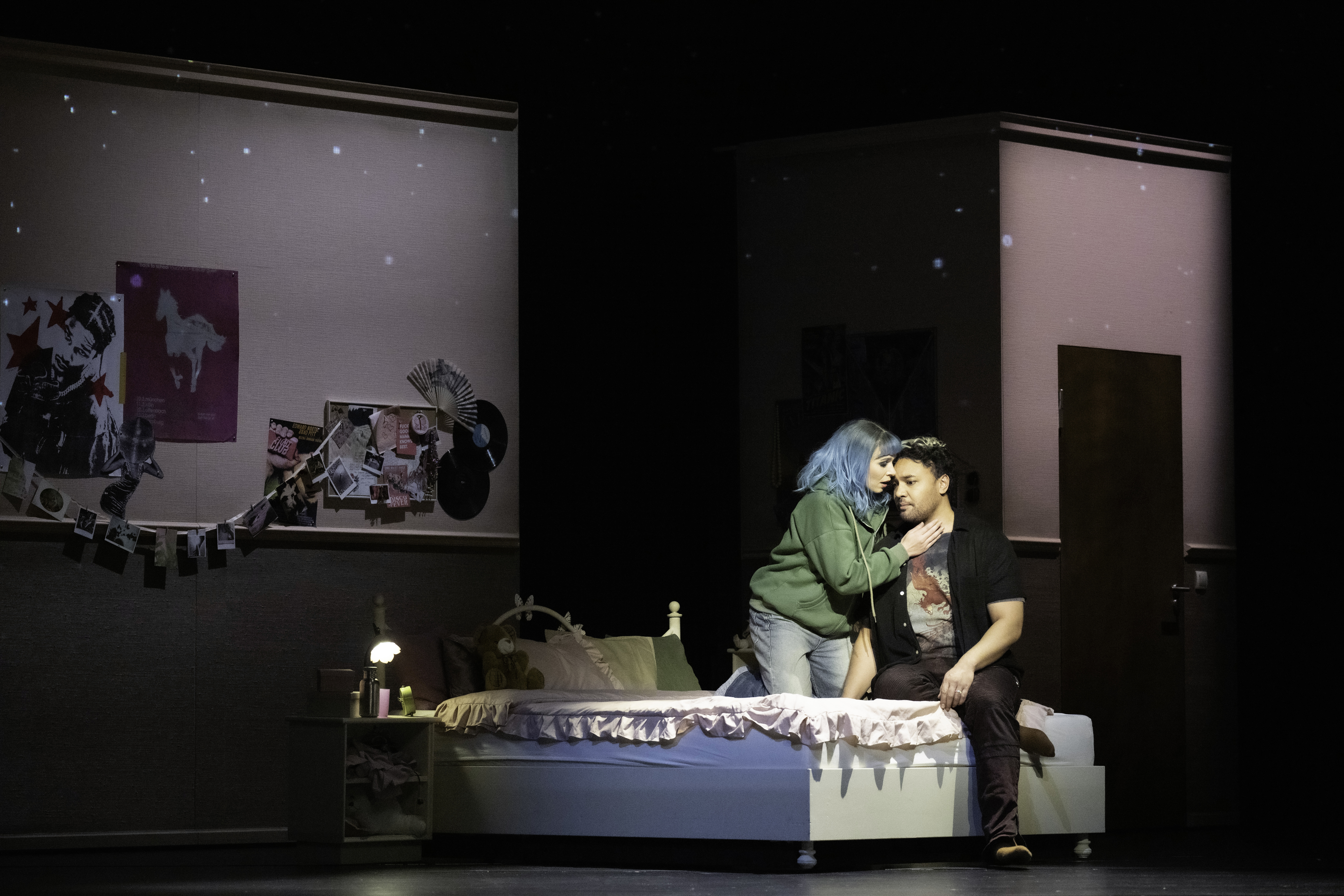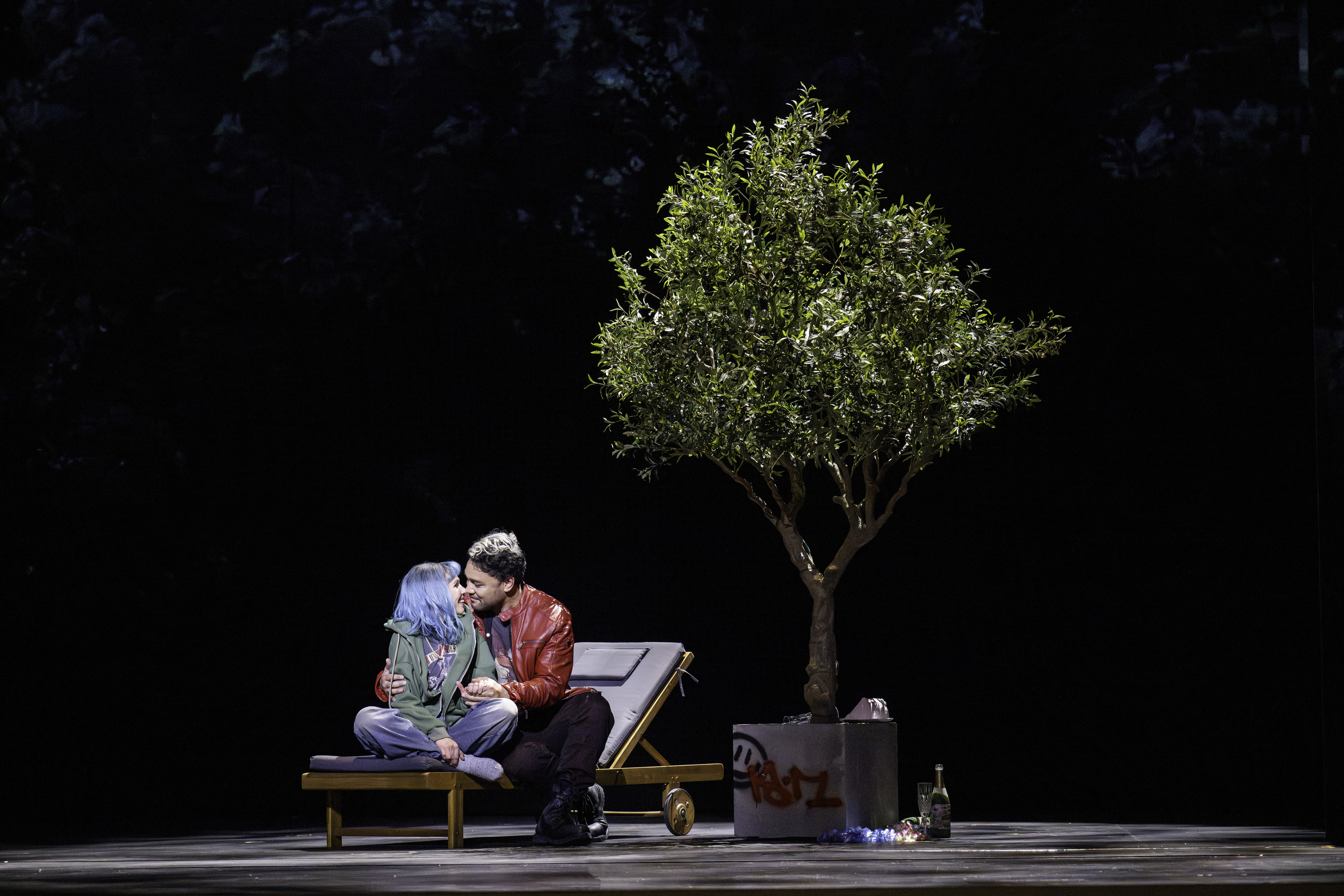Wedding night in a teenage bedroom: Mariame Clément presents Charles Gounod’s ‘Roméo et Juliette’ at the Staatsoper Berlin as a kaleidoscopic youth social drama with intergenerational conflict. That doesn’t always work.
Arturo Toscanini once said: ‘If Tristan and Isolde were Italian, they would have seven children by the end of the second act. But they are German, so they are still discussing.’ After the first performance of ‘Roméo et Juliette’ at the Lindenoper in over 100 years, one is reminded of this statement, as the relationship between the other great lovers, ‘Romeo and Juliet’, in the treatment of its author Shakespeare and the highly romantic interpretation by the French Romantic composer is similar. After all, Charles Gounod and his librettists Jules Barbier and Michel Carré put everything into this tragic love drama about the impossible love of two young people in the harsh reality of hostile clans: romantic choral passages and pathetic tableaux, extended oratorio-like and thus expanded to include religious aspects, the death of the protagonists at the end is even more of a failure and hopelessness due to the impossibility of the here and now than in Shakespeare. In keeping with the overall compositional impression of the pictorial tableaux over five acts, Sébastien Dupouey‘s videos show kaleidoscopic forms, symbols and cuts, which are probably intended to emphasise the ambiguity of the characters involved, but too often suddenly appear and disappear again without explanation.

In her first work for the Staatsoper Unter den Linden, Parisian Mariame Clément focuses on the youthfulness of the lovers. In Clément’s work, Juliette is a blue-haired girlie in a pastel-coloured monochrome parental home (set and costumes by Julia Hansen). Only the birthday party sings of glowing, fiery love in the past tense. The chorus, rehearsed by Dani Juris, sings in a beautifully compact and accomplished manner, and Ulrik Gad‘s lighting flashes and briefly illuminates the frozen and pale society in the vivid light of the dream world.

When, after the intermission, Juliette finally longs for her wedding night in her teenage bedroom in front of Titanic film, horse and Roméo posters, it is a dreamed escape from the here and now. The teenage bed moves out of the room and a powerful image emerges in front of a pitch-black night with stars and a projected butterfly. Unfortunately, it remains a solitaire and is not pursued any further, as are other directorial ideas. As a result, the production too often loses itself in too many trivialities.

The priest Frère Laurent is a greying old 68s teacher with a pigtail (Nicolas Testé with clear intonation and precise voice leading) and, as a pedagogue, presents the potion as the only way out before Juliette’s ordered marriage to Pâris (David Oštrek with an expressive bass-baritone): the potion as a symbol of the failure of the ideals of 68 across the board.
Elsa Dreisig gives a passionate Juliette full of vigour and viral expressiveness, scoring particularly well in the high notes with a beautifully tense but never forced intensity. Her beautifully conducted, rather lyrically orientated soprano also shines with nuance and precision, which quite rightly earned her much applause on the premiere evening.

As Roméo, Amitai Pati is a vocal partner who is not quite up to the task, with a secure, tight tenor who, although a little strained in the high notes, is nevertheless convincing and has some depth of expression. The youthful lover is immediately recognisable. Roméo and Juliette thus appear as authentic, youthful lovers trying to break out of the constraints of their sterile parental home. Unfortunately, the way in which this could happen remains open, which is partly due to the subject matter and partly due to the inconsistent direction.
In other roles, Marina Prudenskaya stands out as the caring Gertrude with her warm, flowing mezzo and Johan Krogius as Tybalt with his beautiful intonation. Stefano Montanari makes his debut conducting the Staatskapelle, but in some passages he finds it difficult to harmonise the ensemble and the pit. In addition to coordination difficulties, it is only as the work progresses that he succeeds in creating an atmospheric and exciting interpretation of the work, which is also quite differentiated and sensitive in many places. In the end, a few boos for the conductor and director, but great applause for the other participants.